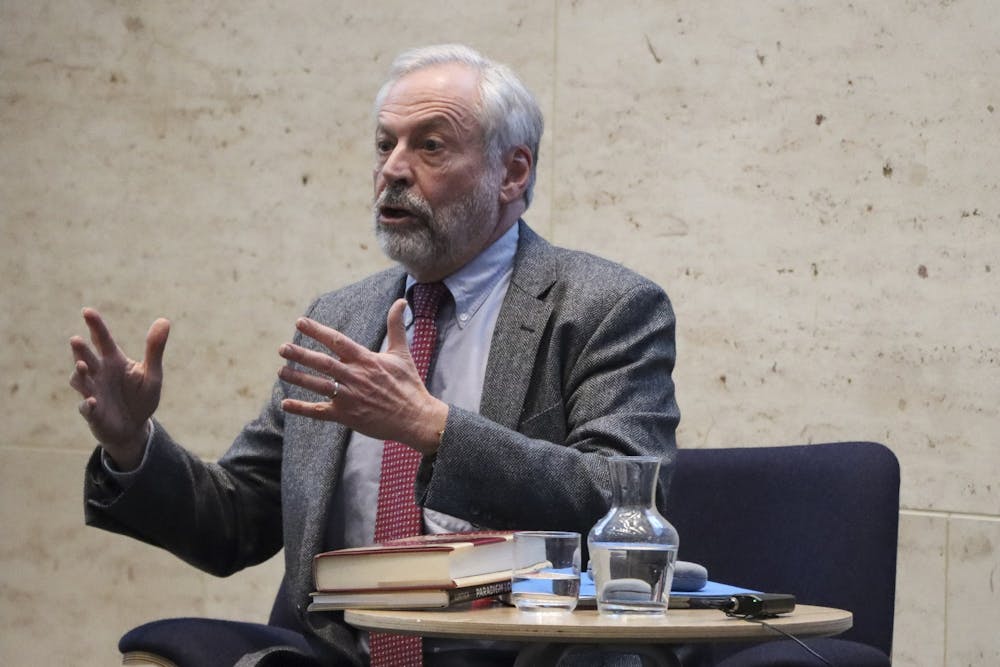Over 100 people attended Penn professor Ian Lustick's discussion about his new book "Paradigm Lost: From Two-State Solution to One-State Reality" at Perry World House on Tuesday evening. Lustick emphasized that Israel and Palestine currently exist under the Israeli government and said that he favors applying norms of democracy and equality to its constituents to ease tensions.
The book discusses the potential for Israel and Palestine to end their conflict, which dates back to 20th-century territorial disputes, by changing the existing Israeli state. Lustick once advocated for Israel and Palestine to exist separately, but now acknowledges that it is unlikely because negotiations in the Middle East have not yet produced a two-state solution. He added that he is ready to support any outcome the Israelis and Palestinians can agree on.
Lustick was joined by Sa’ed Atshan, assistant professor of Peace and Conflict Studies at Swarthmore College, and moderator Trudy Rubin, Perry World House Visiting Fellow and foreign affairs columnist for The Philadelphia Inquirer.After studying the Israeli-Palestinian conflict for many years, Lustick said he watched the potential for a negotiated two-state solution disappear. He described the negotiations as a “merry-go-round” that was spinning in circles without making any real progress.
In addition to the failed negotiations, Lustick added that that the state of Israel has moved too far to the right for the government to implement a solution agreeable to Palestinians.

The audience of over 100 people was so large that the event was moved to the World Forum.
The panel featuring Lustick and Atshan lasted 40 minutes and was followed by 20 minutes of questions from the audience. In his introduction, Atshan thanked Perry World House for including a Palestinian voice in the conversation.“I thought it was really cool that they included a Palestinian voice on the panel, because I think that a lot of the discussions in the United States about the conflict eliminate Palestinian voices,” College first-year Bianca Schwimmer said.
Atshan and Lustick said they both believe in the success of a one-state reality but admitted that they are uncertain about what arrangement will satisfy both the Israelis and Palestinians.
“I have seen many, many ideas in blueprints for parallel states, two homelands in one state, a bi-national state, a democratic secular state,” Lustick said. "Blueprints are nice to look at, but that’s not what’s going to tell us what the future is going to be."
The event was the first installment of Perry World House’s The World Today event series for the spring semester. Events are held every Tuesday from 4:30 p.m. to 5:30 p.m., including Tackling Emerging Threats to National Security on Feb. 4.
The audience consisted of some adults who said they attend The World Today event series regularly and Penn students. Students such as Schwimmer and Wharton senior Sophia Ye, who spent winter break in Israel with a Penn Global Seminar program, both said they came to the event to learn more about the Israeli-Palestinian conflict and help inform their opinion.
“I think this discussion on college campuses can be very straightforward," Lustick said. "All you have to do is use your values of equality, non-discrimination and democracy."
A previous version of this article incorrectly stated that Lustick supports a one-state solution to the Israeli-Palestinian conflict, when in fact he believes in a one-state reality that involves changing the existing Israeli state. The DP regrets the error.









